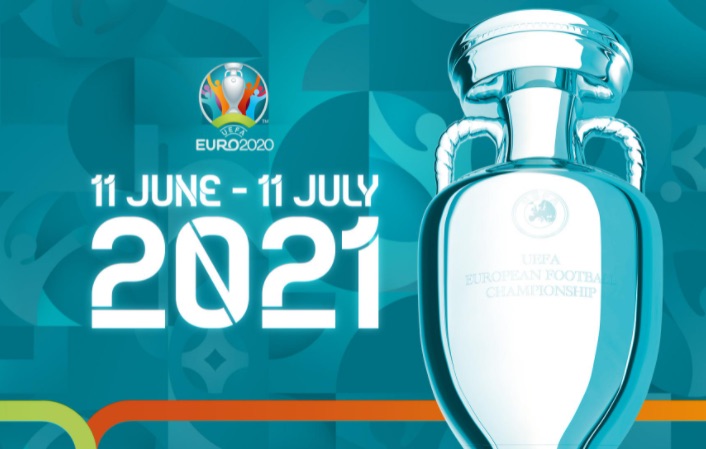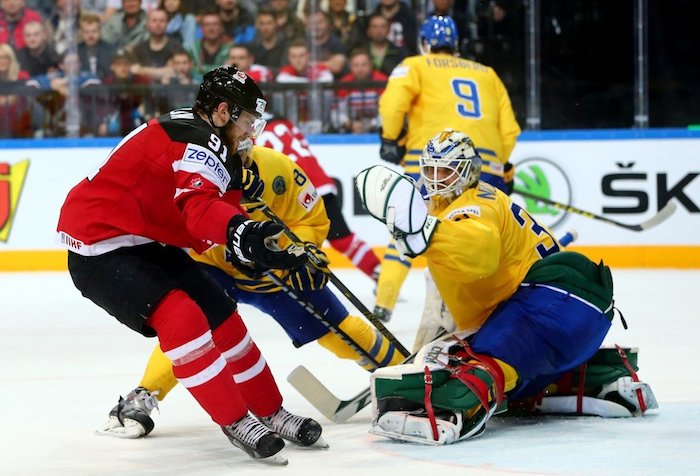Also Interesting
A year after Euro 2020 was postponed, soccer fans on the edge of their seats as Euro 2021 begins

Another sign the world is getting closer to ‘normal’… Euro 2021 is here! Soccer fans around the world are geared up for the biggest sporting event in the world since the pandemic hit. Teams representing 24 nations are vying for the championship. Here’s what the pro’s see going into the tournament.
The Euro Top Stats And Records
The moment we’ve all been waiting for is finally here. Euro 2021 is set to kick off in June 2021 and participating teams are already training for the big moment. Bettors looking to make a fortune off their favourite teams and players can ready themselves when the games finally begin. Euro 2021 betting sites are already in full fledge so fans can conveniently gamble on any of the 24 qualified teams and also monitor as Europe’s best teams clash for the cup.
But before the event begins in the next couple of weeks, let’s dive into the records set by top teams and players during the tournament. Keep reading this page to learn more!
The Euro Top Stats And Records
Spain and West Germany have dominated UEFA Euro on the national level. Both teams have won the Euro cup three times. Spain won the tournament in 1964, 2008, and in 2012. West Germany also won the tournament in 1972, 1980, and in 1996.
Listed below are some major Euro statistics recorded since the tournament started in 1960.
UEFA Euro Winner & Highest Scoring Teams Recorded Each Tournament.
|
Year |
Host |
Winner |
Highest Scoring Team |
|
1960 |
France |
Soviet Union |
Yugoslavia, 6 goals. |
|
1964 |
Spain |
Spain |
Russia, Spain, Hungary 4 goals. |
|
1968 |
Italy |
Italy |
Italy, 3 goals |
|
1972 |
Belgium |
West Germany |
West Germany, 5 goals. |
|
1976 |
Yugoslavia |
Czechoslovakia |
West Germany, 6 goals. |
|
1980 |
Italy |
West Germany |
West Germany, 6 goals. |
|
1984 |
France |
France |
France, 14 goals. |
|
1988 |
West Germany |
Netherlands |
Netherlands, 8 goals. |
|
1992 |
Sweden |
Denmark |
Germany, 7 goals. |
|
1996 |
England |
Germany |
Germany, 10 goals. |
|
2000 |
Belgium & Netherlands |
France |
Netherlands, France, 13goals.
|
|
2004 |
Portugal |
Greece |
Czech Republic, England, 10 goals. |
|
2008 |
Austria & Switzerland |
Spain |
Spain, 12 goals.
|
|
2012 |
Poland & Ukraine |
Spain |
Spain, 12 goals. |
|
2016 |
France |
Portugal |
France, 13 goals. |
Final Tournament Appearances
Final Tournament Goals
When it comes to individual player performance, Cristiano Ronaldo currently sets the pace forother players in the EURO competition. For years, he has been at the center of the competition leading his country to the finals and then the champion in 2016.
Cristiano Ronaldo also tops the chart as the highest goal scorer in the tournament (including qualifying) At the moment, he has scored 40 goals for his country, Portugal.
While fans were expecting more of Ronaldo and classic performances from other stunning players like David Silva, Sergio Ramos, and Antoine Greizman in the Euro 2020 competition, all their hopes were dashed when the competition was postponed due to the corona pandemic.
Alberta
From Underdog to Top Broodmare

WATCH From Underdog to Top Broodmare (video)
Executive Producers Jeff Robillard (Horse Racing Alberta) and Mike Little (Shinelight Entertainment)
What began as an underdog story became a legacy of excellence. Crackers Hot Shot didn’t just race — she paved the way for future generations, and in doing so became one of the most influential producers the province has known.
The extraordinary journey of Crackers Hot Shot — once overlooked, now revered — stands as one of Alberta’s finest success stories in harness racing and breeding.
Born in humble circumstances and initially considered rough around the edges, Crackers Hot Shot overcame long odds to carve out a career that would forever impact the province’s racing industry. From a “wild, unhandled filly” to Alberta’s “Horse of the Year” in 2013, to producing foals who carry her spirit and fortitude into future generations.
Her influence ripples through Alberta’s racing and breeding landscape: from how young stock are prepared, to the aspirations of local breeders who now look to “the mare that did it” as proof that world-class talent can emerge from Alberta’s paddocks.
“Crackers Hot Shot, she had a tough start. She wasn’t much to look at when we first got her” — Rod Starkewski
“Crackers Hot Shot was left on her own – Carl Archibald heard us talking, he said ‘I’ll go get her – I live by there’. I think it took him 3 days to dig her out of the snow. She was completely wild – then we just started working on her. She really needed some humans to work with her – and get to know that people are not scary.” — Jackie Starkewski
“Crackers Hot Shot would be one of the top broodmares in Albeta percentage wise if nothing else. Her foals hit the track – they’re looking for the winners circle every time.” — Connie Kolthammer
Visit thehorses.com to learn more about Alberta’s Horse Racing industry.
Also Interesting
Historic Return: NHL Confirms Player Participation in 2026 Winter Olympics

The NHL has officially confirmed the inclusion of its players in the 2026 Winter Olympics in Milan-Cortina, Italy, following a 12-year absence that left the fans craving the excitement of the real best-on-best international hockey. The announcement is a historical event, as it goes back to the Olympic arena where the hockey powerhouse nations of the world will eventually be faced with their complete NHL prowess.
The ruling has not only shaken the hockey fraternity but also the sports fraternity at large, as it has generated early predictions, betting debates, and revived rivalries. Also, such large websites as GGBet, where many fans place their bets, have also been on the lookout, offering odds and analysis on which country will win gold.
A Long-Awaited Comeback
Since the 2014 Olympics in Sochi, NHL players have not been given the chance to play in the Olympics. The spectators have since witnessed world championships that, even though competitive, did not have the superstar appeal of Olympic hockey. This decision of the league in selecting the players to Milan-Cortina is a recreation of the desires of the NHL and the international arena to become one again.
The 2026 tournament will be the one offering the excitement, talent, and passion that will be fitting among NHL players. These legends, such as Sidney Crosby, Connor McDavid, Auston Matthews, and Leon Draisaitl, could play with young players like Jack Hughes and Tim Stützle – that sort of experience and youth.
The Tournament Breakdown
The event in hockey will take place between 11 and 22 February 2026, and the team count will be 12, which will be divided into three groups:
● A: Canada, Switzerland, Czechia, France.
● B: Italy, Finland, Sweden, Slovakia.
● C: Latvia, Denmark, the US, Germany.
The teams will be playing three pre-elimination games followed by play-off, which will lead to the final match, and a gold medal will be given on February 22.
Slovakia is going to play against Finland, and Sweden against Italy. Team USA starts playing on February 12, and Team Canada plays against Czechia. The matches would all be at either the Santagiulia Ice Hockey Arena or the Rho Ice Hockey Arena, both in Milan.
Why This Moment Matters
It is not only entertainment but a legacy that the NHL has gone back to the Olympics. To the league, it reestablishes itself as the world body in professional hockey. To players, it makes their lifelong dream of playing in the national team a reality in the biggest sporting arena. And to fans, it revives the magic that made such moments as Crosby scoring his Golden Goal in Vancouver 2010 unforgettable.
Nevertheless, beyond the ice, such a move will make the NHL more global and strengthen the new generation of sportsmen. The Games of 2026 are expected to achieve a huge global following, whereby fans in North America, Europe, and other continents will be reached.
Looking Ahead
As the opening of February 2026 approaches, the teams are plotting, investigating, and preparing to contest a tournament that numerous people are calling the most competitive Olympic hockey tournament to date. The already existing dream is Canada vs. USA, Finland vs. Sweden, and national pride will clash against the NHL-type talent.
Final Thoughts
It is not a sports story, but a cultural phenomenon because NHL players are returning to the 2026 Winter Olympics. It is an embodiment of unity, excellence, and the unadulterated affection of hockey. The fans all around the world are eagerly awaiting the days when the puck will drop in Milan and they will be watching a show that has been 12 years in the making.
The tournament will not be remembered for the successive gold medals, but rather for the first face-off to the final gold medal celebration. It can be either your country that wins; it could be just watching the magic, but in any case, one thing is certain: the Olympics are back, and the game has never been this alive.
-

 Censorship Industrial Complex2 days ago
Censorship Industrial Complex2 days agoCanadian bishops condemn Liberal ‘hate speech’ proposal that could criminalize quoting Scripture
-

 Energy2 days ago
Energy2 days agoSenate votes to reopen Alaska Coastal Plain to energy leasing
-

 Daily Caller2 days ago
Daily Caller2 days agoTrump Orders Review Of Why U.S. Childhood Vaccination Schedule Has More Shots Than Peer Countries
-

 Alberta1 day ago
Alberta1 day agoA Memorandum of Understanding that no Canadian can understand
-

 Censorship Industrial Complex1 day ago
Censorship Industrial Complex1 day agoFrances Widdowson’s Arrest Should Alarm Every Canadian
-

 COVID-192 days ago
COVID-192 days agoCanadian Health Department funds study to determine effects of COVID lockdowns on children
-

 Aristotle Foundation1 day ago
Aristotle Foundation1 day agoThe extreme ideology behind B.C.’s radical reconciliation agenda
-

 Focal Points22 hours ago
Focal Points22 hours agoPharma Bombshell: President Trump Orders Complete Childhood Vaccine Schedule Review










